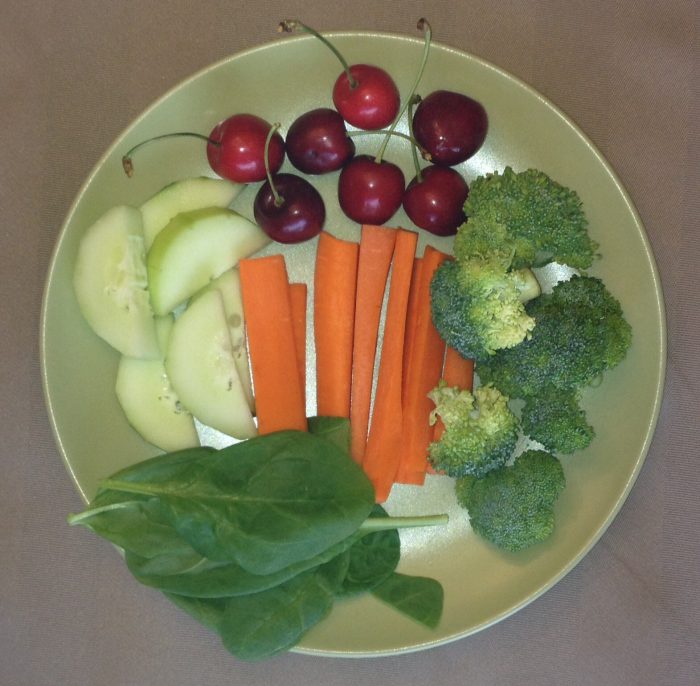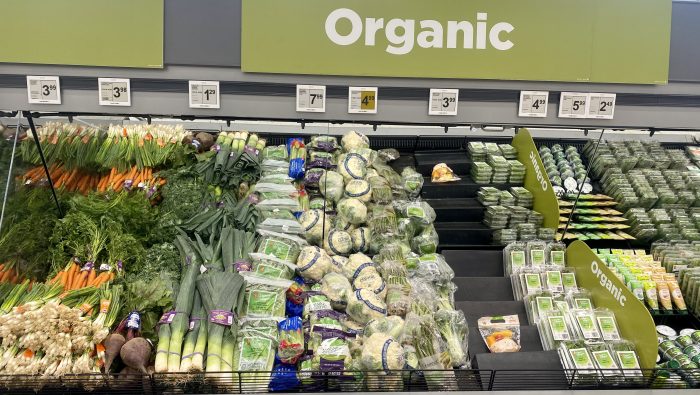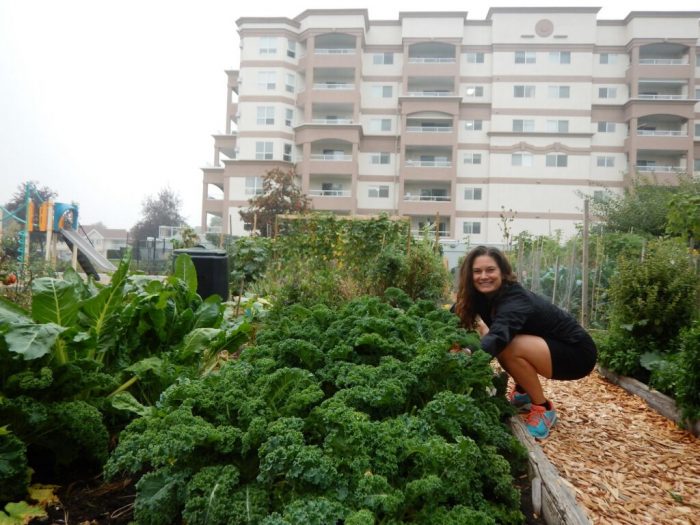12 Fruits and Vegetables You Should Buy Organic

Do you buy organic products? Organic produce in grocery stores is now easier to find. But what does organic mean? Organic means that produce has been grown in healthy soil without the use of synthetic fertilizers, pesticides, weed killers and irradiation. Indeed, they are not genetically modified organisms (GMOs). Regarding meat products, it means that animals haven’t received any antibiotics or growth hormones and have been fed with organic foods.
Read more: What does organic mean? by Organic Canada Trade Association

Studies show that some people eating non-organic vegetables react to pesticides and get sick. Some of the negative health effects are respiratory problems, reproductive issues, endocrine system disruption, neurological damage and increased risk of certain cancers. A 2016 analysis in Scientific Reports found a link between pesticides and an increased risk of Alzheimer’s disease. When consumers eat organic for a few weeks, some symptoms go away. A recent study has demonstrated that pesticide residues negatively affect some women’s fertility, especially when they are trying to get pregnant or are pregnant; the pregnancy can also be affected.
Long term effects of eating non-organic meat happen when people get sick and need antibiotics. This is because, when necessary, live stock are fed antibiotics. In turn, when humans eat that meat, they gradually develop antigens. Therefore, their immune system doesn’t react to the same antibiotics that the animals have received.

Why is organic produce better than conventional foods? Organic food has:
- More flavor and tastes better.
- Higher levels of nutrients and antioxidants.
- More omega-3 fatty acids in meats, dairy and eggs.
- Lower amounts of toxic metals in grains such as cadmium.
- Fewer antibiotic-resistant bacteria on meats.
- Lower detectable levels of pesticides.
Have you heard about the dirty dozen? It is a list of fruits and vegetables you should buy organic because they contain more pesticides than other crops. Each year, the Environmental Working Group (EWG) provides consumers with the “dirty dozen” and “clean fifteen” lists to protect consumers from pesticide health effects. Buying organic can be expensive but there is a way you can save on your next grocery bill. Here are the lists:
| Clean 15: buy at the conventional section | 12 Dirty Dozen: buy organic |
| Avocados | Strawberries |
| Sweet corn | Spinach |
| Pineapple | Kale, collard and mustard greens |
| Onions | Nectarines |
| Papaya | Apples |
| Sweet peas (frozen) | Grapes |
| Eggplant | Pears |
| Asparagus | Cherries |
| Broccoli | Peaches |
| Cabbage | Bell and hot peppers |
| Kiwi | Celery |
| Cauliflower | Tomatoes |
| Mushrooms | |
| Honeydew melon | |
| Cantaloupe |
In addition to the traditional Dirty Dozen, EWG releases a Dirty Dozen Plus list that contains 36 more fruits and vegetables that have high levels of pesticide residues, including cherry tomatoes, snap peas and blueberries.

Buying organic can be expensive but here is a way you can save on your next grocery bill. This summer, buy fruits and vegetables straight from farmers. You can ask them if they use synthetic fertilizers and pesticides on their crops. A lot of them like keeping their crops clean. So, buy local, encourage your farmers and save on your grocery bills. Or even better, grow your own vegies. I have a community garden and there is noting better than fresh tomatoes from the garden.
Read more:
Health Risks of Pesticides in Foods by Centre for Ecogenetics & Environmental Health
Are Pesticides in Foods Harming Your Health? by Healthline
Stop Eating Pesticides by Consumer Reports
